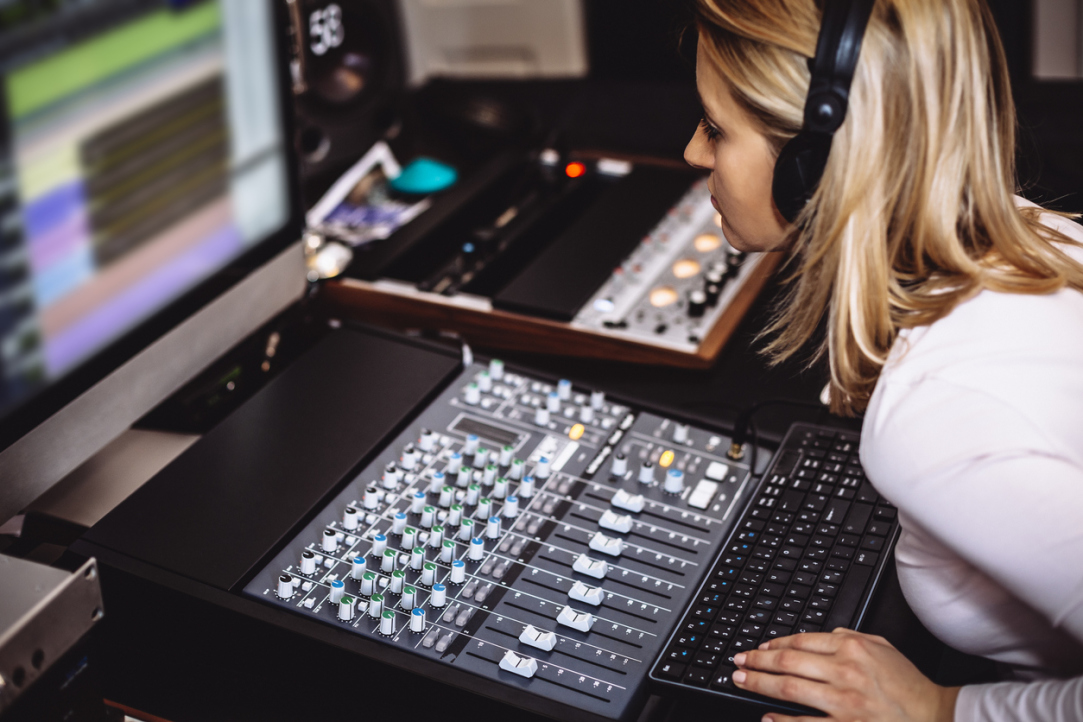New Online Lab of HSE Art and Design School Explores Conceptions of Sound

Unthinking/Unlearning is a joint project by the Klammklang label with Master’s programmes in Sound Studies and Sonic Arts at Berlin University of the Arts (UdK) and Sound Art and Sound Studies at the Art and Design School of HSE University. The project, which began on May 15 and will conclude on June 1, is dedicated to the Year of Germany in Russia 2020/21. Participants of the online lab will study audial, visual, and musical practices.
Sound as an agent, a new philosophy of sound, its embodiment, and research—the online lab will be dedicated to various aspects of audial and musical practices. ‘At the laboratory, we suggest departing from common, often colonial interpretations of the world in order to discover new ways of interaction with technology, arts, and most importantly, with oneself and the others,’ said Evgenia Bylina, co-curator of the laboratory, lecturer at the HSE Art and Design School and researcher of contemporary music and audial culture. She believes that listening not only helps us receive information about the world, but is also a form of sensation that impacts our view of our surrounding reality.
In order to ‘hear’ the world, to become ‘consonant’ with it, we need to elaborate new forms of sonorous imagination and thinking, which are not about strict analysis, but about affectionate sensitivity — a kind of ‘blindness’ that promises unlikely discoveries
The laboratory will also focus on developing new ways of thinking about and imagining sound. In addition, the lab will serve as a networking platform, said Yulia Sharifullina, co-curator of the lab, lecturer at the HSE School of Art and Design and founder of Klammklang, an independent music agency. ‘Our lab is aimed at promoting new connections at different levels. It has been essential for us to attract participants from different localities: not only Moscow and St. Petersburg, but other Russian regions. We want the contacts that participants make at the lab to continue helping them implement their local projects.’

The laboratory participants include people from Russian regions such as Perm, Ekaterinburg, Krasnodar, Naberezhnye Chelny, and others. For example, Lyubov Vink, media artist, playwright, and film director, will participate from Krasnoyarsk. She says that it was the content of the project that drew her. ‘I am currently working with sound as text and inter-sounds to create the necessary drama and mechanics of my work, but I understand that the capabilities of sound work are much wider.’
I love the atmosphere of laboratories, both as a participant and an organizer. My awareness and skills in such an atmosphere increase exponentially. I am looking forward to the whole process!
Danila Matrosov also shared his expectations of participation in the lab. He works in Ekaterinburg as a co-curator of the concert series, ‘New Music in Freedom Hall’, at the Yeltsin Centre as well as a musician and video engineer at the Sverdlovsk Drama Theatre. ‘I expect this to be a very productive experience,’ Danila said. ‘First, because the programme and the experts are really outstanding, and second, because it will be a collective experience that brings people together. I hope that the lab experience will be useful in promoting the culture that relates to new sound practices and theories back where I live, in the Urals.’
Besides Russia, participants of the lab are from the Netherlands, Belarus, Poland, and Azerbaijan. ‘I have long been checking on Berlin University of the Arts, so when I saw the announcement of a joint course by HSE University and UdK, I did not think twice and applied,’ said Farkhad Farzali, artist and sound designer from Baku. He also admitted that he had always wanted to work in Max (a visual programming language for app creation, which is often used by musicians), but had been intimidated by the interface. ‘I hope that this course will help me overcome my fear,’ he added.

A total of 195 people from 12 countries applied for the project. Of them, 26 students passed the selection. They will work in two workshops: Computer Music Techniques and Technologies and Field Recordings and Discovered Sounds.
The laboratory will run from May 15 to June 1. Its programme includes an open theoretical course and a practice component (the languages of instruction are Russian and English). The participants will get to know the main topics of sound studies and focus on three of them: sound as an agent of social relations; new sound conceptions; and a review of contemporary art practices of working with things that make sound. In addition, they will be able to practice field recording and study advanced computer music techniques.

